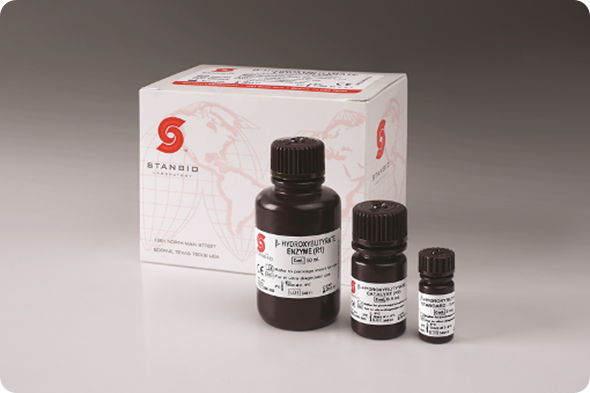Stanbio Laboratory, an EKF Diagnostics company, has developed the ß-Hydroxybutyrate LiquiColor® Reagent System to improve the detection of clinically significant ketosis.

Image credit: EKF Diagnostics
Ketosis is elevated levels of ketones in the body that occur when stored fats are broken down in response to a low supply of energy (glucose). Using the reagent system, levels of the ketone ß-Hydroxybutyrate in serum and plasma can be used to clinically diagnose and monitor diabetes mellitus, alcoholism, glycogen storage disease, high fat/low carbohydrate diets, pregnancy, alkalosis, ingestion of isopropyl alcohol, and salicylate poisoning.
As ß-Hydroxybutyrate is the main ketone produced during ketosis (~78%), the blood assay provides a better tool than the nitroprusside test strips commonly used for the detection of ketone bodies in urine, which only detect 22% of ketones present. ß-Hydroxybutyrate also demonstrates excellent stability, making it the most reliable indicator of clinically relevant ketosis and ketoacidosis.
The ß-Hydroxybutyrate LiquiColor® Reagent System produces quantitative and objective results and provides an excellent tool for differentiating metabolic acidosis and monitoring therapy. Its precise and sensitive quantitative results enable earlier detection of ketosis and faster patient treatment, thus improving Emergency Room (ER) and Critical Decision Unit (CDU) throughput and efficiency.
ß-Hydroxybutyrate is used by many of the most respected healthcare systems in the United States. The diagnostic effectiveness of Stanbio’s enzymatic Beta-Hydroxybutyrate (ß-HB) LiquiColor® assay is rapidly driving its acceptance in hospital laboratories across the USA as the new standard of care in ketosis testing. Over 850 (representing 20%) of US hospitals are now using the assay for accurate, specific and quantitative testing of this main ketone produced during ketosis. Consequently, physicians can make better informed clinical decisions which are changing the way hospitals manage patients displaying symptoms of ketoacidosis.
The liquid-stable LiquiColor ß-HB reagent can be used on open channel chemistry analysers from twenty different manufacturers. A point-of-care option is also available in the form of the STAT-Site® M ß-HB strip-based testing system.
Controls and linearity standards are available and all reagents have a 24-month shelf life from date of manufacture.